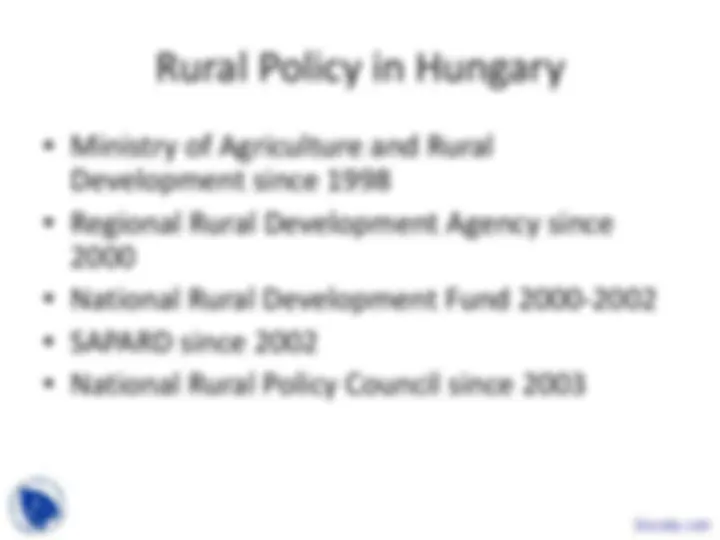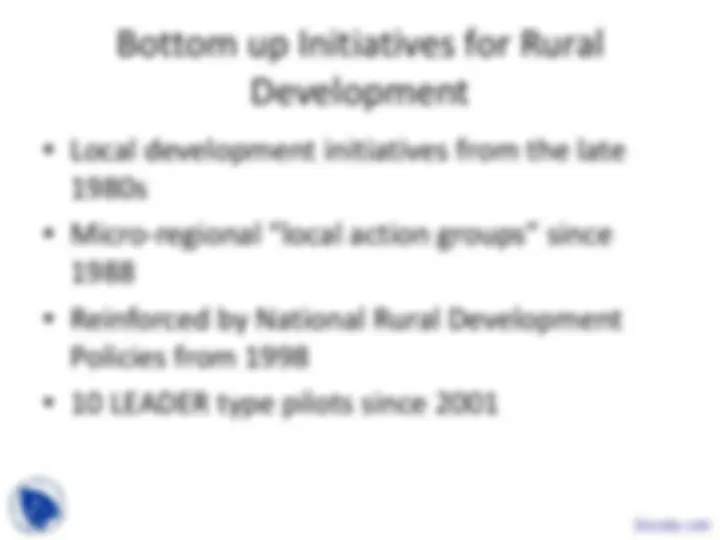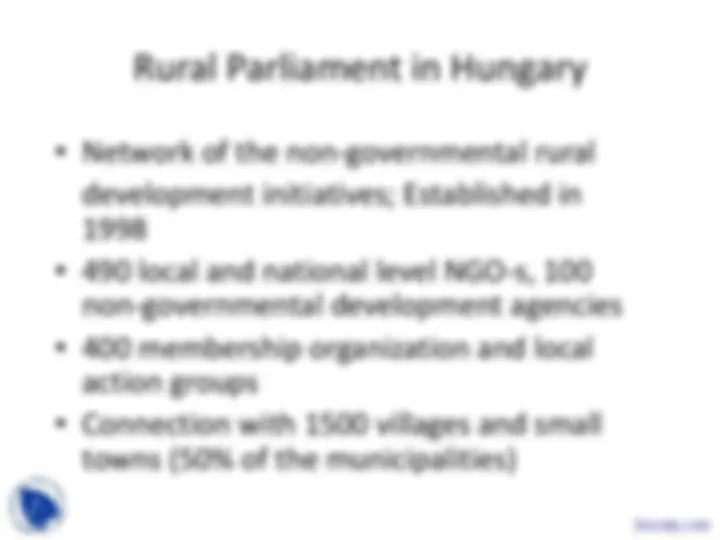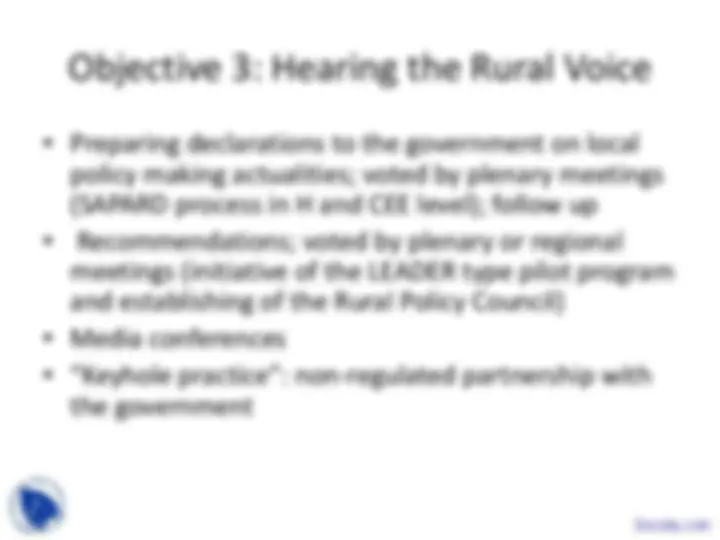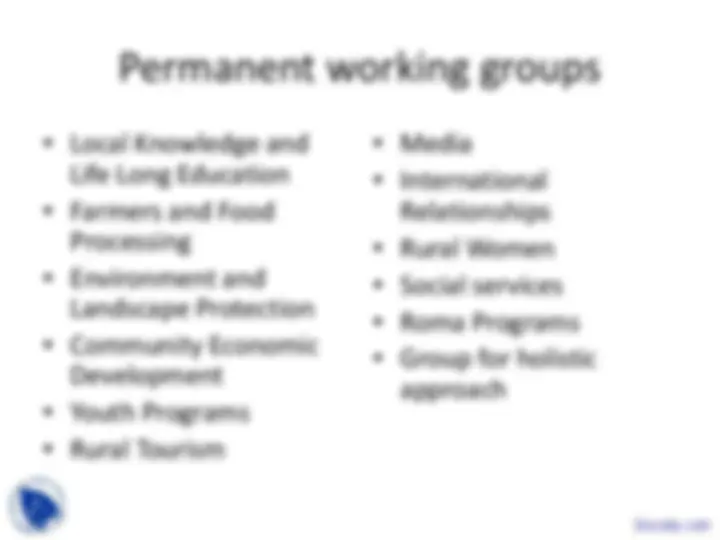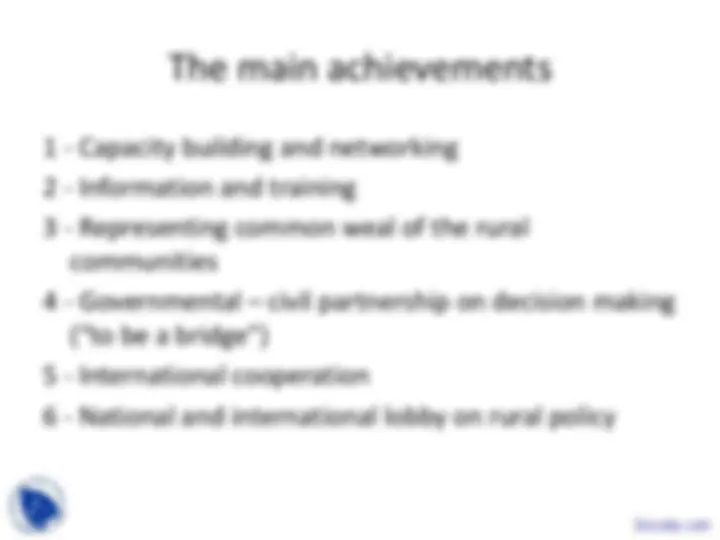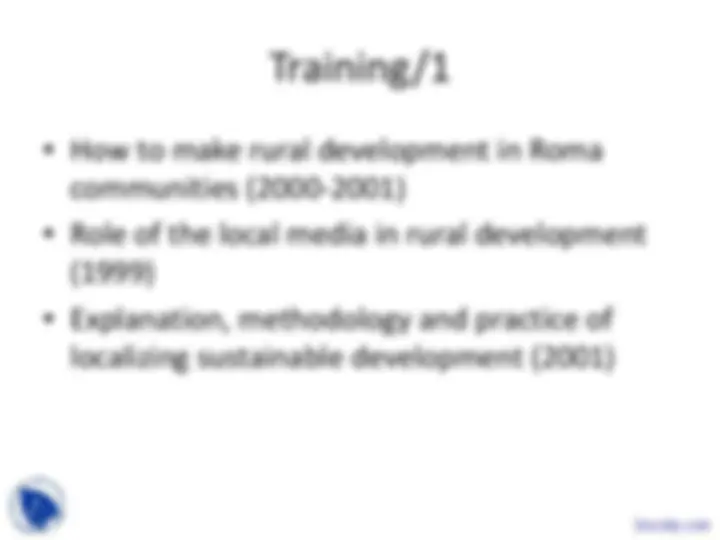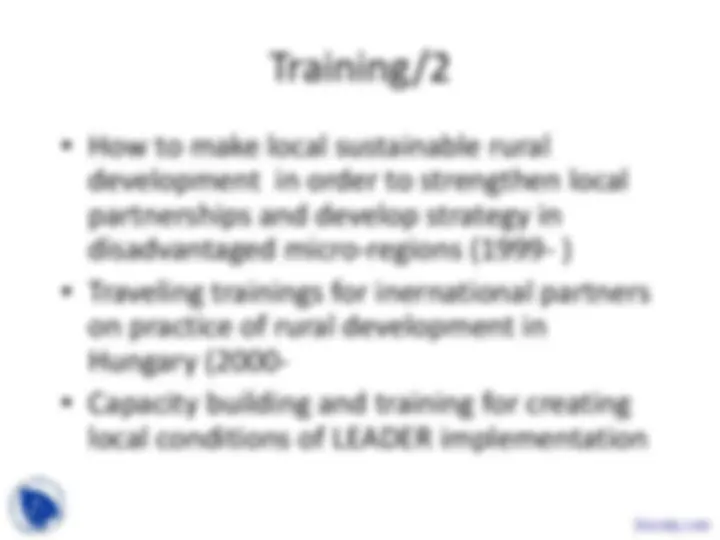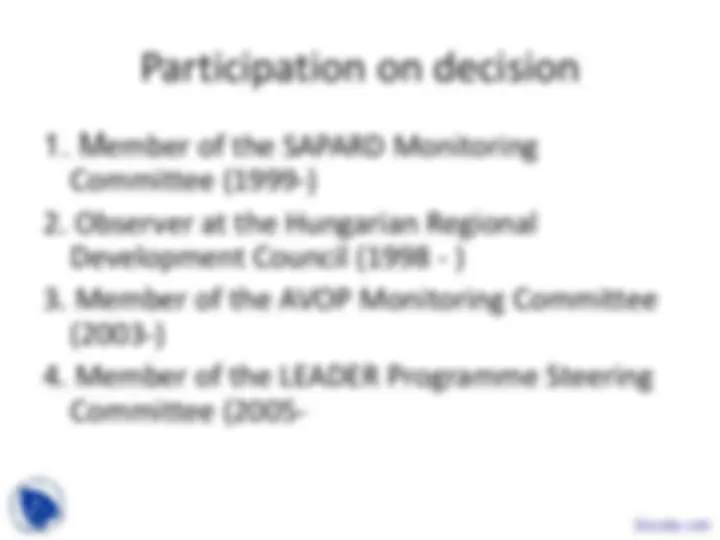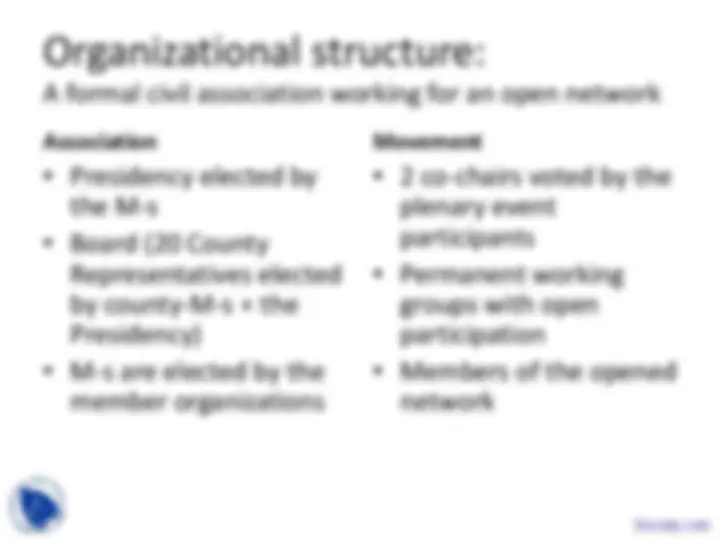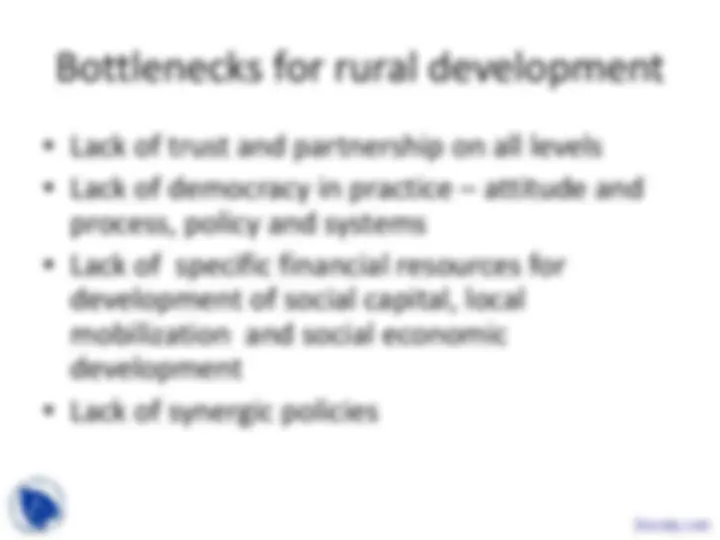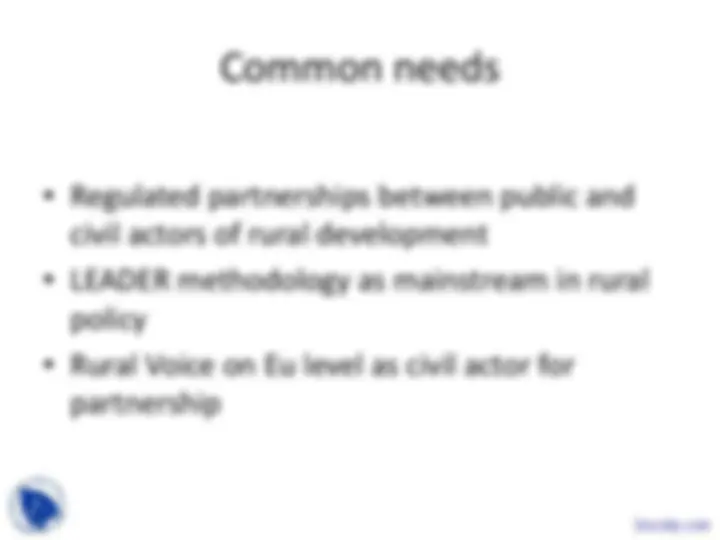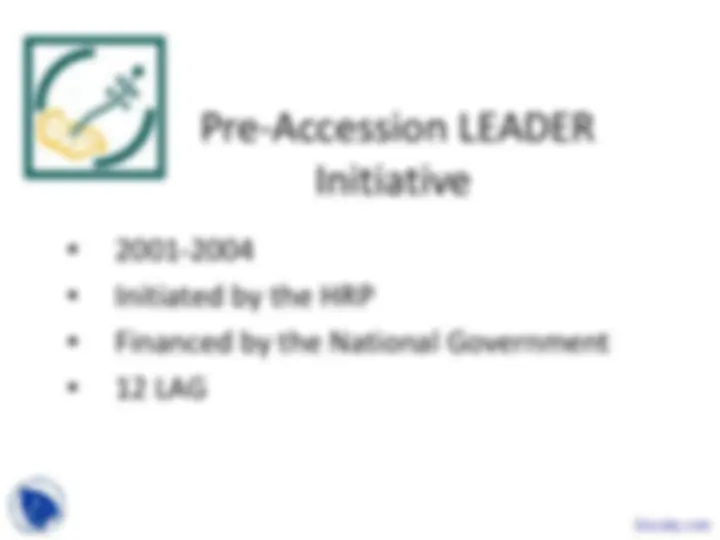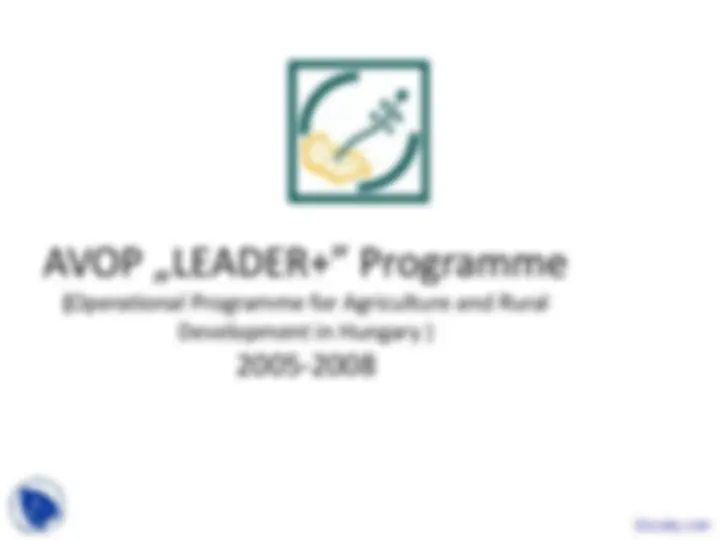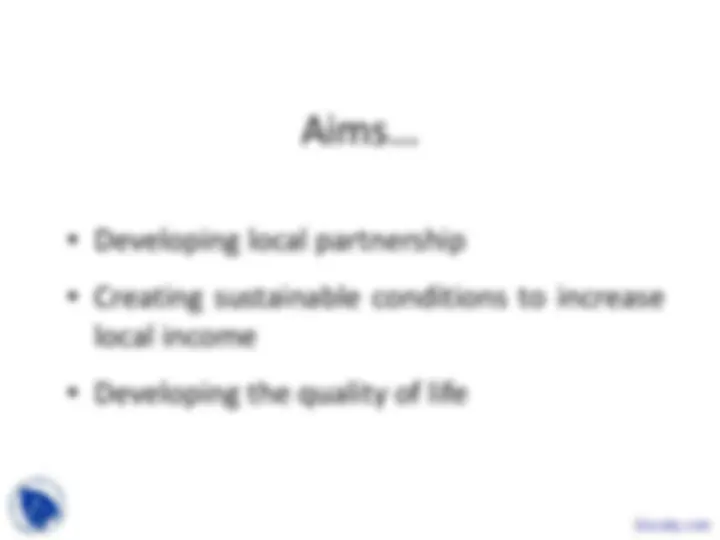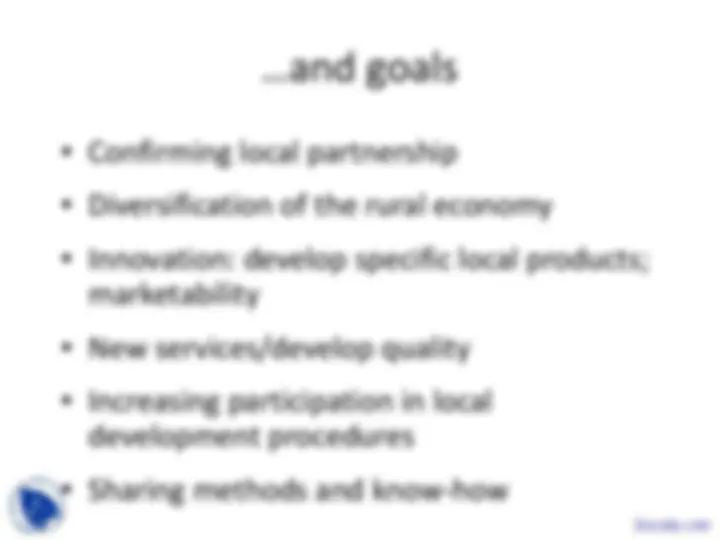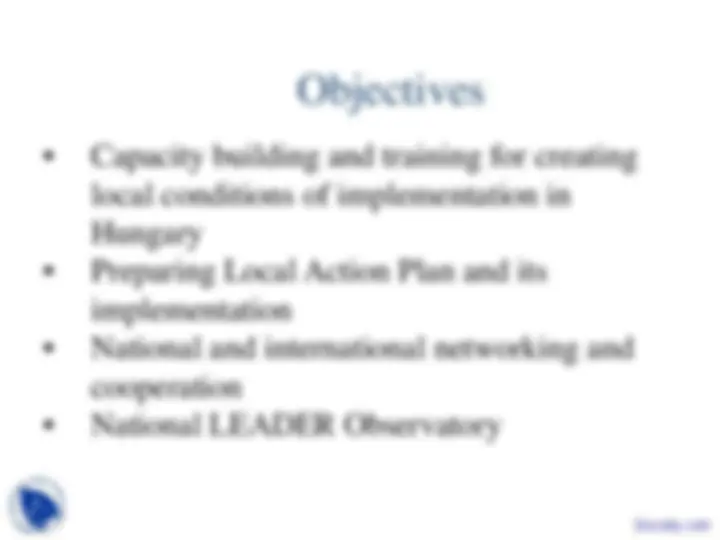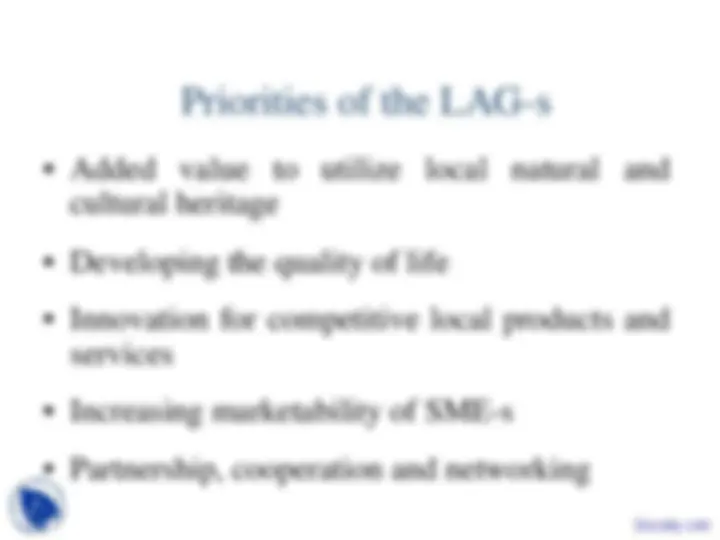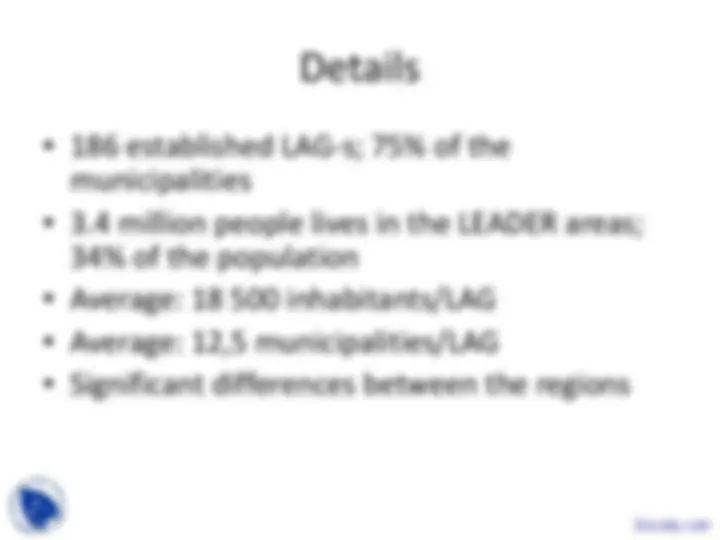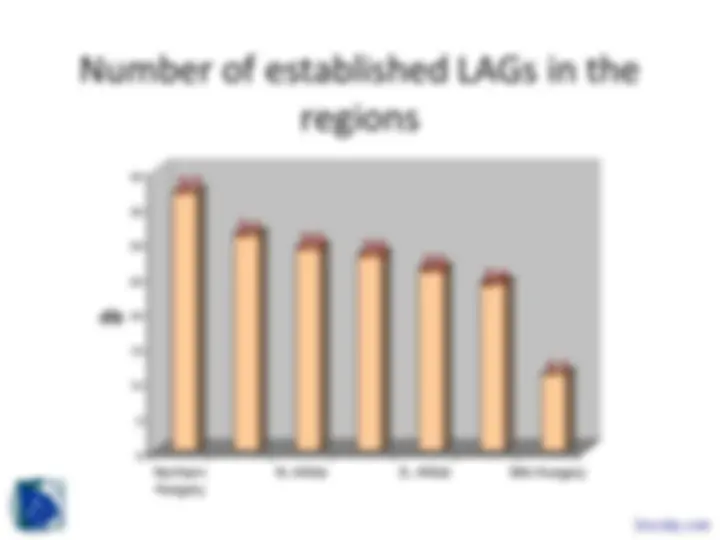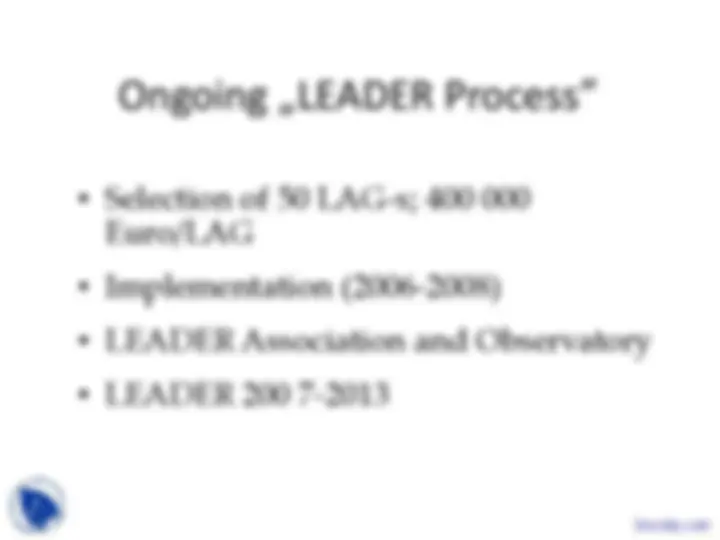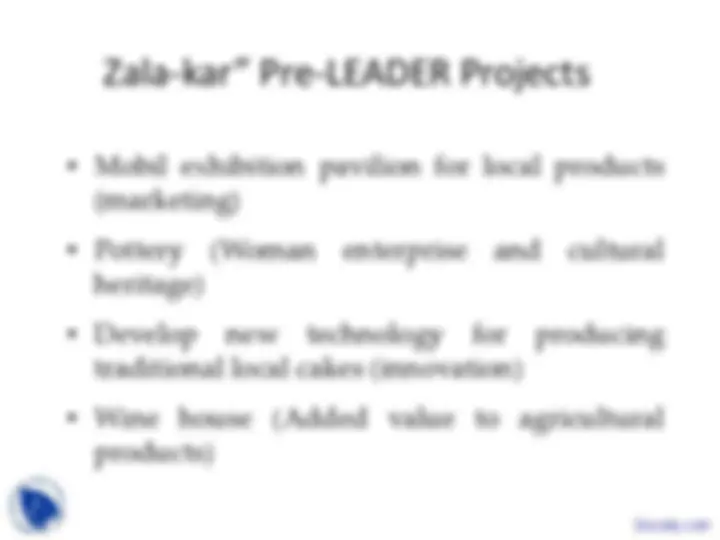Download Rural Parliament - Rural Development - Lecture Slides and more Slides Human Development in PDF only on Docsity!
„ LEADER” Programme
and the „Rural Parliament”
in Hungary
Country in the Middle of Europe
- 10 millions people / 93 000 km
- 38% rural inhabitants
- 3200 municipalities/1500 tiny villages
- 67% agricultural land, including forests
- 170 micro-regional rural initiatives (10-
000 inhabitants
Bottom up Initiatives for Rural
Development
- Local development initiatives from the late
1980s
- Micro-regional “local action groups” since
- Reinforced by National Rural Development
Policies from 1998
- 10 LEADER type pilots since 2001
Rural Parliament in Hungary
- Network of the non-governmental rural
development initiatives; Established in
- 490 local and national level NGO-s, 100
non-governmental development agencies
- 400 membership organization and local
action groups
- Connection with 1500 villages and small
towns (50% of the municipalities)
Objective 2: Localizing sustainable
development
- Protect the local nature, economy and cultural heritage
- Promote methodology and practice of the synergic way of local development
- Develop local democracy and citizen participation
- Improve the situation of disadvantaged social groups such as women, youth and ethnic groups e.g. Roma
- Disseminate best practices of the rural development and social mobilization
Objective 3: Hearing the Rural Voice
- Preparing declarations to the government on local policy making actualities; voted by plenary meetings (SAPARD process in H and CEE level); follow up
- Recommendations; voted by plenary or regional meetings (initiative of the LEADER type pilot program and establishing of the Rural Policy Council)
- Media conferences
- “Keyhole practice”: non-regulated partnership with the government
The main achievements
1 - Capacity building and networking
2 - Information and training
3 - Representing common weal of the rural
communities
4 - Governmental – civil partnership on decision making
(“to be a bridge”)
5 - International cooperation
6 - National and international lobby on rural policy
Capacity building by events
- National (2 times/year) and regional gatherings ( time/2 years) to exchange “best practices” of the rural development and to represent common weal of the rural communities
- Fairs of local value-added products (e.g., handicraft, organic food, etc.)
- Festival of locally-made films; how to document the village-life
- Working group meetings of specific interest groups
Training/
- How to make rural development in Roma
communities (2000-2001)
- Role of the local media in rural development
- Explanation, methodology and practice of
localizing sustainable development (2001)
Training/
- How to make local sustainable rural
development in order to strengthen local
partnerships and develop strategy in
disadvantaged micro-regions (1999- )
- Traveling trainings for inernational partners
on practice of rural development in
Hungary (2000-
- Capacity building and training for creating
local conditions of LEADER implementation
Rural Parliament as Facilitator
Facilitator of the discussion on
- SAPARD Plan (1999)
- National Development Plan (2002-)
- National Rural Development Plan (2003-)
International cooperation
- Partnership: Swedish, Estonian and Slovakian Rural
Parliaments and many other similar international networks
- Membership in Forum Synergies (European Network
of Sustainable Local Initiatives) and EPHA (European Public Health Association)
- One of the founder of the PREPARE Program (1999)
and PREPARE Network Group (Pre-Accession Partnership for Rural Europe)
Bottlenecks for rural development
- Lack of trust and partnership on all levels
- Lack of democracy in practice – attitude and
process, policy and systems
- Lack of specific financial resources for
development of social capital, local
mobilization and social economic
development
- Lack of synergic policies
Common needs
- Regulated partnerships between public and
civil actors of rural development
- LEADER methodology as mainstream in rural
policy
- Rural Voice on Eu level as civil actor for
partnership

